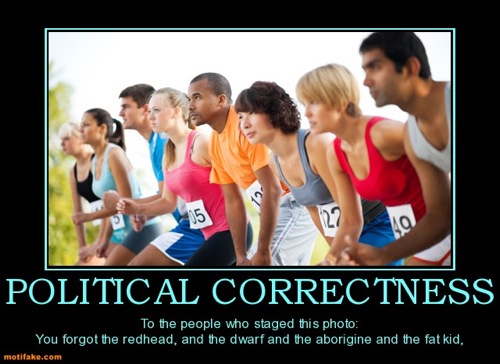
Back in 2005, I wrote a three-part series on political correctness and religion. I started by taking a look at how political correctness (PC) is usually defined, how it flourished in academia, and how it initially marginalized social conservatives. I noted how the PC movement would come to include religious belief as a component of culture, greatly restricting the degree to which it was permissible to criticize religious beliefs. I then considered some of the implications of this inclusion, suggesting that shielding religious belief from criticism was detrimental to our progress.
This theme - that the inclusion of religious belief as a matter of culture and the resulting opposition to criticism of religious belief by the PC movement has been disadvantageous - is one to which I have returned many times. For example, I have written about how atheists are often marginalized by the political left because we are generally not content to withhold criticism of religion. I have also repeatedly pointed out the vast difference between "I'm offended" and "That is offensive," noting that one of the real dangers of PC is the manner in which it can stifle valid and necessary criticism.
The protection afforded to religion by the PC movement places atheists in a difficult position, especially those with an inclination toward secular activism. An atheist in the United States who engages in one of many forms of secular activism will be perceived by some as intolerant, close-minded, and anti-diversity. This seems to happen even if the atheist in question is merely attempting to promote atheism or humanism as viable alternatives to religious belief.
Since we are currently mired in the fictional "war on Christmas," you can find evidence of what I am talking about there. Atheists who point out church-state violations this time of year are not only accused of intolerance; we are painted as enemies of religious freedom. For some Christians, our efforts to have a nativity scene on government property removed are akin to oppression. But even more pervasive is the social pressure we face to go along with the popular view of Christmas as a Christian holiday and keep any thoughts to the contrary to ourselves.
The PC movement has been a double-edged sword in many respects. Those of us who value gender equality might not mind the fact that it is no longer socially acceptable for men to demand that women are "barefoot and pregnant." Those of us who believe that members of the LGBT community should have the same rights as heterosexual individuals might not mind the fact that efforts to "pray away the gay" are now viewed as evidence of intolerance. And yet, the manner in which religious belief has been afforded some of the same protections should make us just a bit uncomfortable.
I know this may be hopelessly naive on my part, but I cannot help thinking that we should be striving for more dialogue and discussion rather than less. Efforts to restrict free expression, no matter how noble their intent, come at a price.